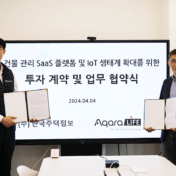Last Sunday, the South Korean Ministry of Justice announced the revision of the 'Enforcement Decree of the Immigration Control Act', which includes granting of startup visas to foreigners for better facilitation of foreign investment activities in Korea. It also aims to encourage international students in Korea to establish startups in the country. (Is Seoul going to be the next Silicon Valley?... Maybe, maybe.)
I have looked at the proposed revisions to the enforcement decree of the Act, and have:
- put the visa type in bold; and
- bullet-pointed the requirements.
Corporate investment visa (D-8)
This is what is meant by what the Korean media dubs the "entrepreneurship visa”. It will be granted as part of the corporate investment visa (D-8) for foreigners who:
- Hold at least a bachelor’s degree;
- Have earned an intellectual property right; and
- Have established a company in the related field.
However: you must obtain D-10 (Employment Visa) first before receiving the entrepreneurship visa (D-8).
Employment visa (D-10)
Given to those looking to set up a business. Requirements:
- Must have an intellectual patent.
Note: They will first be given this visa then will be allowed to receive the entrepreneurship visa (D-8).
Permanent residency visa (F-5)
This visa is given to those who have contributed to Korean industry by:
- Attracting more than KRW 300 million (USD $263,000) in investment; and
- Employing more than two Koreans.
Long-term residence visa (F-2)
The ministry will also widen the eligibility criteria for the long-term residence visa.
Previously, this was only granted to individual investors. Now, this visa can be granted to:
- Individual investors;
- Company executives; and
- Shareholders of investor companies.
Nonprofessional employment visa (E-9)
Foreigners applying for nonprofessional employment visas must:
- Submit their criminal history; and
- Physical check-up records.
Conclusion
Giving certified foreign entrepreneurs wider leeway is a part of the Korean government efforts to stimulate foreign investment. The Ministry of Justice plans to receive public opinion and feedback on the Act through its website before submitting the revised Act to the National Assembly.
Just a couple of concluding thoughts and questions -
1. The ministry said that it will toughen visa screening process for 'certain' immigrants in order to prevent social problems derived from ill-fated international marriages. Here's the catch: the ministry will test the applicants' command of Korean language in order to see if basic communication between spouses is possible.
2. It is not detailed what constitutes a 'certain' immigrant group.
3. Does this mean that all foreign immigrants will be examined? What about those who communicate mostly in English - does that cover them too?





